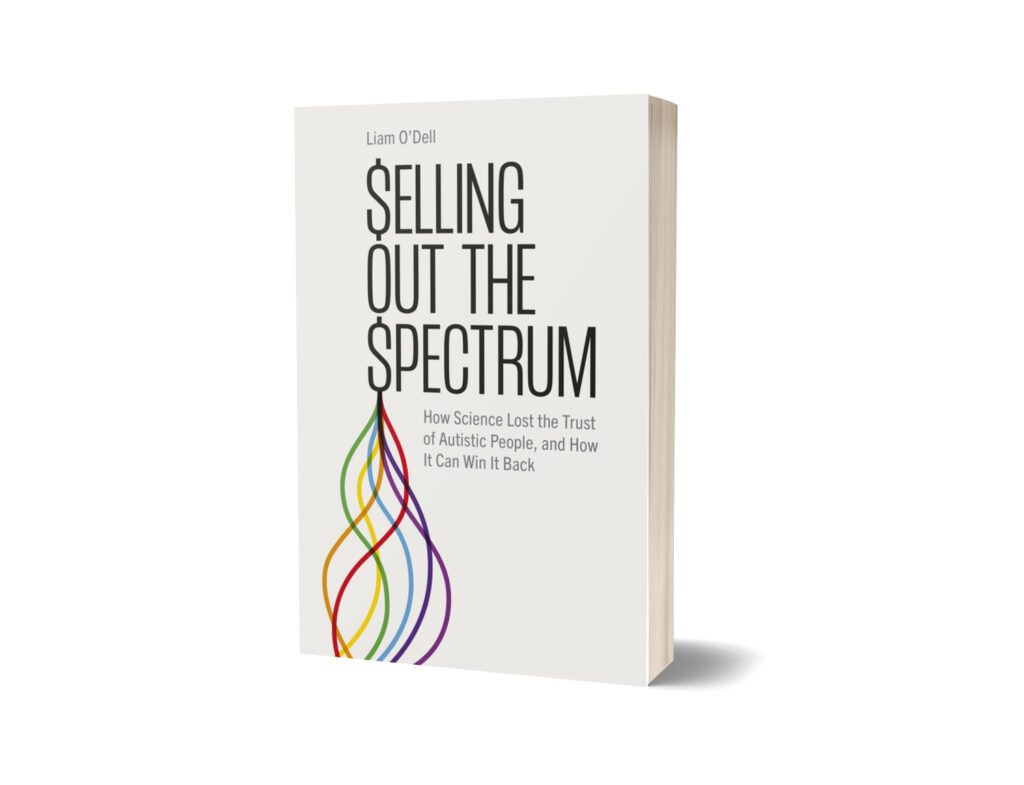
Selling Out the Spectrum: The crisis in autism research speaks to us all – here’s why
In the run-up to my debut non-fiction book Selling Out the Spectrum being published on 21 November, there is always a feeling of apprehension whenever I tell people outside of the autism community about the book’s premise. Autism research and the ongoing crisis over its reputation is certainly a niche topic, and for many people, the language of academia can seem daunting, or serve as an unwanted reminder of evenings spent downing 12 cans of Red Bull in the university library in the rush to finish the dissertation.
I usually start by talking about Andrew Wakefield. If they haven’t heard about the disgraced ex-doctor’s retracted 1998 paper in The Lancet suggesting a link between autism and the vaccine for measles, mumps and rubella, then they’ll at least know of the resurgence of vaccine hesitancy following the coronavirus pandemic for which Wakefield’s discredited paper was very much the precursor.

At this point, I have an ‘in’, and a subject which is familiar to both autistic and allistic – that is, non-autistic – people. Just like it is in the book, it’s a springboard to talk about how autism research continues to encounter problems decades later. The solutions to these issues concern ideas and principles which should be of interest to, and upheld by, autistic and allistic people alike.
It’s about transparency, and its intrinsic relationship to trust. Nobody needs reminding of the £350 million a week Brexit statistic slapped on the side of a bus back in 2016 which just so happened to overlook the rebate, or Donald Trump’s continued flip-flopping on whether he believes he won the 2020 US presidential election or lost “by a whisker”. Political commentators call it ‘post-truth’, and wherever it emerges, trust in big societal systems begins to falter – be it democracy itself, or in this case, autism research. The challenge remains the same; the solutions for the latter can very much help protect the former.
Accountability is linked to this too. Moments where politicians concede they ‘do not know’ make headlines for the refreshing honesty, and the word “sorry” can be just as hard to come by. There is a sense of apprehension felt across a variety of disciplines that to hold our hands up and admit inadvertent harm or mistakes is to lose voters, obliterate our reputation, or tarnish our legacy.
As a journalist, as much as I work to avoid amendments or corrections, I’ve come to embrace moments where I can be honest with people and correct the record, knowing that the transparency often counteracts – or even outweighs – any potential damage that comes from making a mistake. It ties in with the point about transparency and its links to trust. In everyday life, if we engage more in mea culpa, we start a conversation with the community or communities affected – and in many instances (not least autism research) this crucial process isn’t happening as much as it should, with the involvement of the relevant communities which are so often marginalised.
Autistic people have long been described as being direct, and there’s perhaps a certain irony to the fact that straight-talking conversations can be helpful to allistic people, too. The mantra of ‘nothing about us, without us’ continues to be painfully relevant and applicable to so many organisations and businesses who make decisions they believe to be in a particular community’s best interests, without even carrying out the work necessary to confirm that it is something said community wants to see. Policies are proposed and introduced by governments criticised and accused of not listening to the concerns of those impacted by such plans, tech and social media companies have rolled out inaccessible features to then worry about accessibility and inclusion at a very late stage.

Selling Out the Spectrum, I hope, opens up its own honest conversation about trust in autism research, but also about why we’re struggling with the fundamental principle of getting the necessary people together, in the same space (in whatever format that may be) to work towards a compromise or agreed solution.
In a world which seems to be increasingly divided over so many different issues, engaging in the conversations which we need to have with the relevant people isn’t just important in the world of autism research, but for any push towards social progress. Everyone stands to gain from the ideas explored in the book about how we have far more meaningful conversations.
What’s more, autism has long been explored, represented and understood in relation to how it interacts with social norms, and I truly believe the extra work we autistics have to do in order to navigate these (say, through the exhaustive ‘camouflaging’ process known as masking) allows us to develop an appreciation for their inner workings which is much forensic and incisive than neurotypical people.
It means, when we turn to the principles outlined above, we have a greater sense of precisely what the building blocks are which underpin them, which makes the act of rebuilding just a little bit easier.
Kind of handy when you’re writing a book about that very process, huh?
Liam O’Dell is a deaf, dyspraxic, and autistic journalist and activist tackling ‘the big questions’ in relation to autism, science, and research. Selling Out the Spectrum is published on 21st Nov 2024 and is available in paperback, ebook and audiobook.